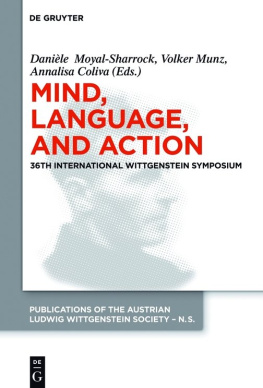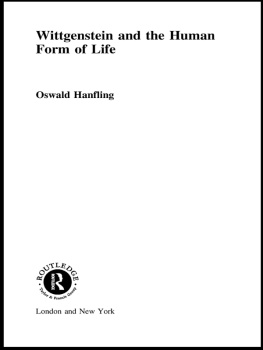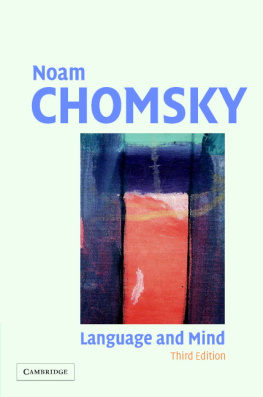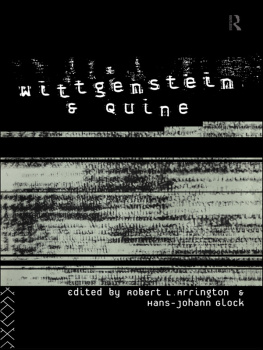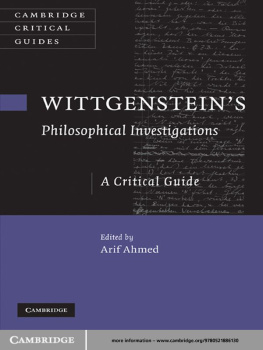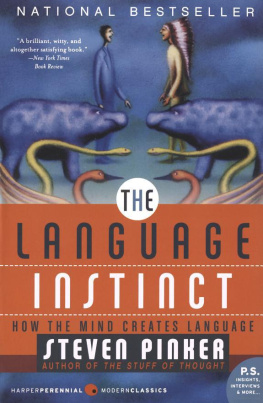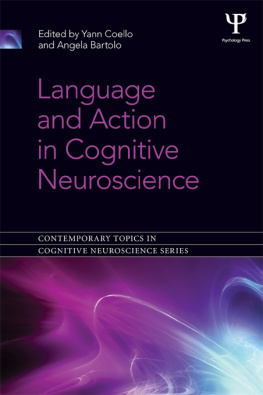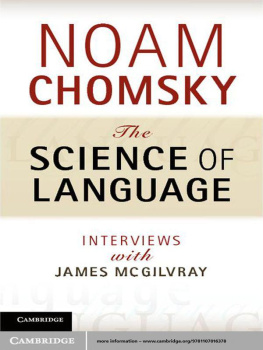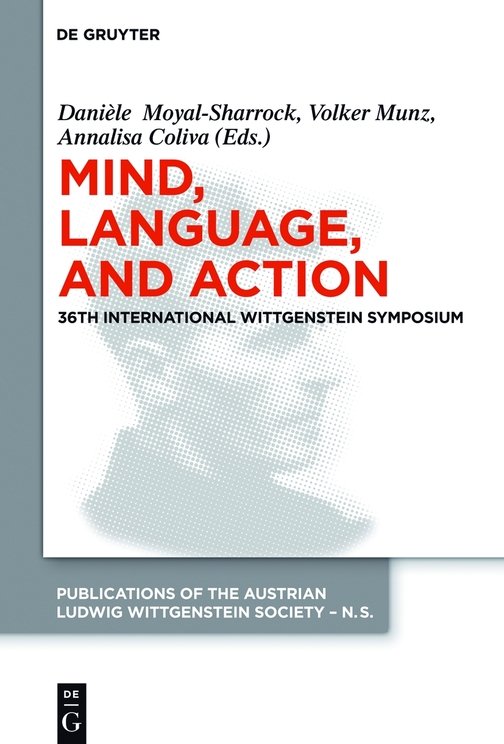This is an ambitious paper. What started me off was trying to resolve what seemed to be a blatant inconsistency in the Tractatus . That text appears to provide equal support for the claim that tautologies and contradictions say nothing, hence say nothing true and nothing false, and the far more widely accepted view that tautologies are true, contradictions false. On one occasion at least, both claims seem to be made in the course of a single entry ( T 4.461). The apparent tension has been noted by others, e.g. (Fogelin 1987:45-7; Milne 2013: 117, fn.23) and some have been bold enough to claim that it is easy to resolve (Moore 2013: 240, fn.3). But it is easy to resolve only by studiously ignoring evidence that stares one in the face and by applying the Principle of Interpretative Charity highly selectively.
Why bother, though, with such a trivial conundrum? Nobody believes the Tractatus any more, just as nobody now believes in angels, and a once pressing question, such as how many of them can dance on the end of a pin, no longer seems relevant to our intellectual endeavours. So, equally, why should we trouble ourselves with scholastic exegesis of an obscure text repudiated even by its own authors later self? Sifting through the detritus of discarded theories may be fun for the historian of ideas, but, for those in steadfast pursuit of philosophical truth, is this not just a sidetrack best avoided?
My answer is that Wittgensteins conclusion that the propositions of logic are not propositions and not truth-valued is his most important contribution to the philosophy of logic, and can be detached from all the Tractatus apparatus that we find dubious. It underlies a wholly novel conception of logic, and is at the root of Wittgensteins doctrinal rift with Russell in the early part of the 20th century. It is highly relevant to modern discussions of various paradoxes, and it leads directly to Wittgensteins later conception of mathematical propositions as rules, to a novel understanding of Gdels first incompleteness theorem, and to a promising option in the foundations of mathematics. I do not have space to give all of these claims the attention they deserve, but I shall follow a particularly interesting thread.
2 Tractatus Logic as Seinfeld Show
As Michael Potter points out (Potter 2009: 52), the very earliest philosophical remarks that we have from Wittgensteins pen are extremely important. These remarks, contained in a letter to Russell written in the early summer of 1912, speak about the propositions of logic. Wittgenstein says of these that they contain ONLY apparent variables. He does not yet have an account of apparent variables, but insists that whatever turns out to be the correct account must have as its consequences that there are NO logical constants. Some of these remarks are repeated at C3-10, and the claim that there are NO logical constants is subsequently given pride of place as the Grundgedanke of the Tractatus at 4.0312. He concludes the letter to Russell by saying that [l]ogic must turn out to be a totally different kind than any other science (Wittgensteins emphases).
To interpret these remarks and to see how they interconnect, we need to be aware of how the key terms were understood one hundred years ago. What does Wittgenstein mean by logical constant? Peter Hacker says that Wittgenstein is alluding to Russells doctrine according to which logical forms, for example, particular, relation, dual complex , etc., are the logical constants which result from abstraction and with which we must be acquainted by logical experience (2001a: 123; 2001b: 143, fn.6). Hacker says that logical constants, thus construed, should not be confused with logical connectives, for which Wittgenstein also used the term logical constants, e.g. at T 5.4. So Hacker is saying that Wittgenstein uses the phrase logical constant ambiguously. Michael Potter takes the different view that, following Russell, Wittgenstein takes the term logical constant to range widely over both l ogical connectives and to the aforementioned abstracted entities (2009: 53).
We nowadays think of logical connectives as signs belonging to formal languages. But, in the early period of their acquaintance, at least, both Russell and Wittgenstein regarded them as the referents of such signs as logical objects (Proops 2000: xx). As Peter Milne notes, in the Tractatus , Wittgenstein sometimes uses logical constants to refer to linguistic signs, sometimes to the alleged referents of those signs, and his fundamental thought is that those signs do not have referents. Milne points out that, by the time of the second edition of The Principles of Mathematics in 1937, Russell had come round to Wittgensteins view that the logical constants are part of language, not part of what language speaks about (Milne 2013: 97, fn.3). Landini says that this change of heart occurred much earlier; that in the Principia Russell had abandoned his early ontology of propositions and adopted the wedge (v) and the tilde (~) as statement connectives in just the modern sense (Landini 2007: 4-5).
Resolving these disagreements is not something we need to do here, for it is clear that Wittgenstein wished to deny the existence both of logical forms and of logical connectives. An under-appreciated aspect of Wittgensteins early work is that, like the mediaeval logicians seeking to identify the ingredients of mental language, grammatically unambiguous and trimmed of all lexical fat, and like Frege, seeking to contrive a script for the representation of pure thought ( Begriffsschrift ), Wittgenstein, following Russell, seeks ontological parsimony by identifying those elements of natural languages that appear to represent, but which can be shown, through paraphrase, to be superfluous and so to carry no ontological burden. Quine, who had a taste for desert landscapes also favoured the technique of paraphrase for paring down to a broadly nominalist ontology. In the early Notes on Logic , Wittgenstein writes: Distrust of grammar is the first prerequisite for philosophizing (B63). A detailed account of how, in the Tractatus , Wittgenstein adopted and sought to extend the Russell programme is provided by (Landini 2007); also (Proops 2000: xviii-xx) and (Goldfarb 2002).
The guiding principle, for Wittgenstein, is Ockhams Razor, which he mentions twice in the Tractatus ( T 3.328, 5.47321). T 5.47321 is transcribed, word for word, from the Notebooks entry for 23.4.15. Wittgenstein writes: Ockhams Razor is of course not an arbitrary rule or one justified by its practical success. What it says is that unnecessary sign units signify (bedeuten) nothing. He attempts, in the Tractatus , to outline a notation that eliminates all redundant signs, for with this elimination goes the ontological elimination of what such expressions allegedly stand for. The paradigms of this technique were obviously Russells elimination of definite descriptions of the form the such and such (It was Russell who performed the service of showing that the apparent logical form of a proposition need not be its real one ( T 4.0031)), as well as Russells no-class and no-proposition theories. Examples include the elimination of the integers in favour of iterated operations (thereby removing numbers from the ontological menu) ( T 4.1272, 6.02 6.022), of the identity sign ( T 5.53 5.5352) and, in the immediately following passage, elimination of the subject (a soul?) that has attitudes such as belief ( T 5.54 - 5.5422), and of all relational expressions ( T 3.1432). The logical constants (in Hackers first sense) are, for Wittgenstein, pseudo-concepts that can be eliminated in favour of variables ( T 4.126 - 4. 1274). Certainty, possibility, impossibility are not features of states of affairs and are not expressed by a proposition, but by an expressions being a tautology, a proposition with sense, or a contradiction [respectively] ( T 5.525). (Here, by the way, is strong indication of a point we shall discuss later: that Wittgenstein did not regard tautologies and contradictions as propositions).

